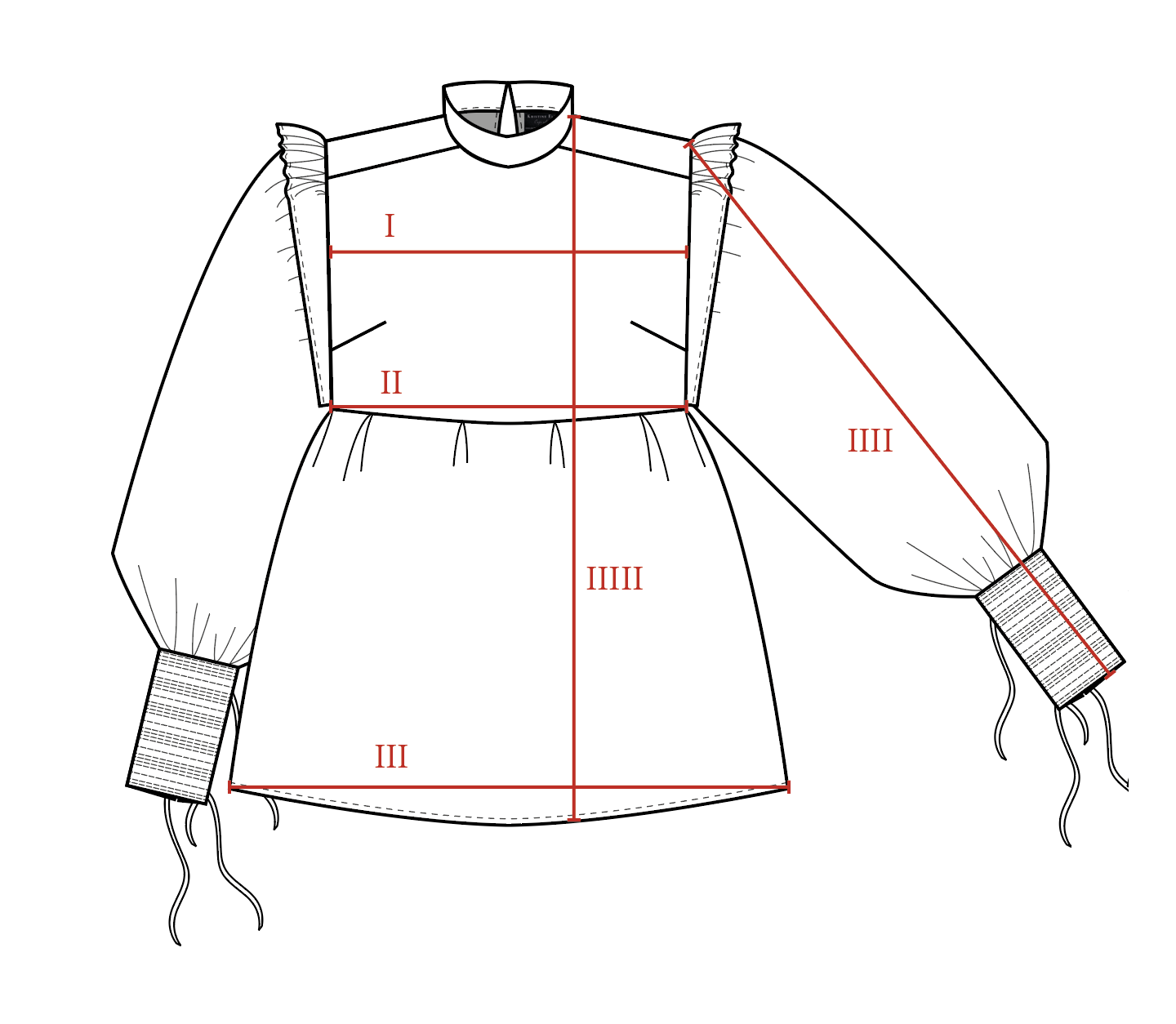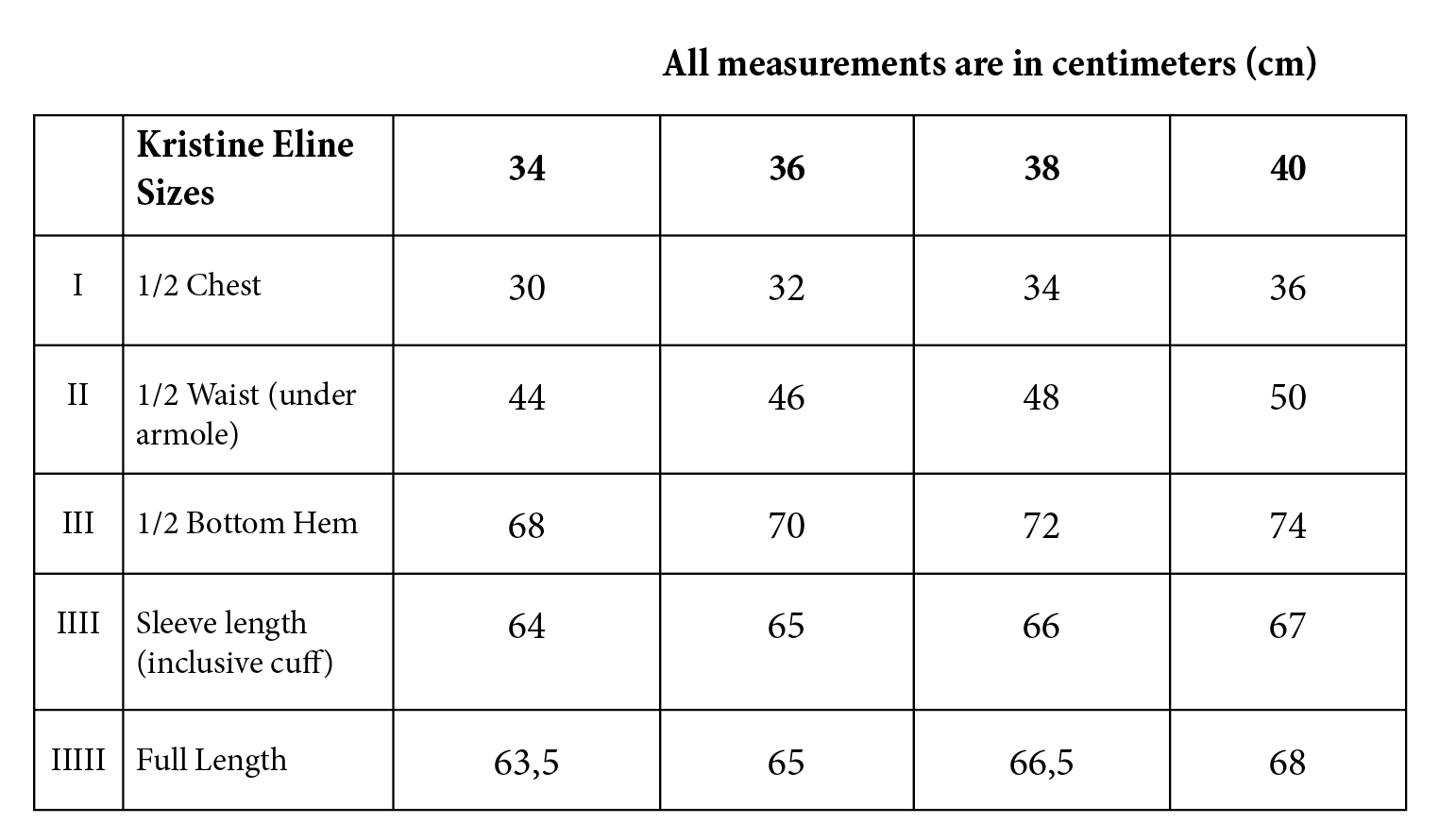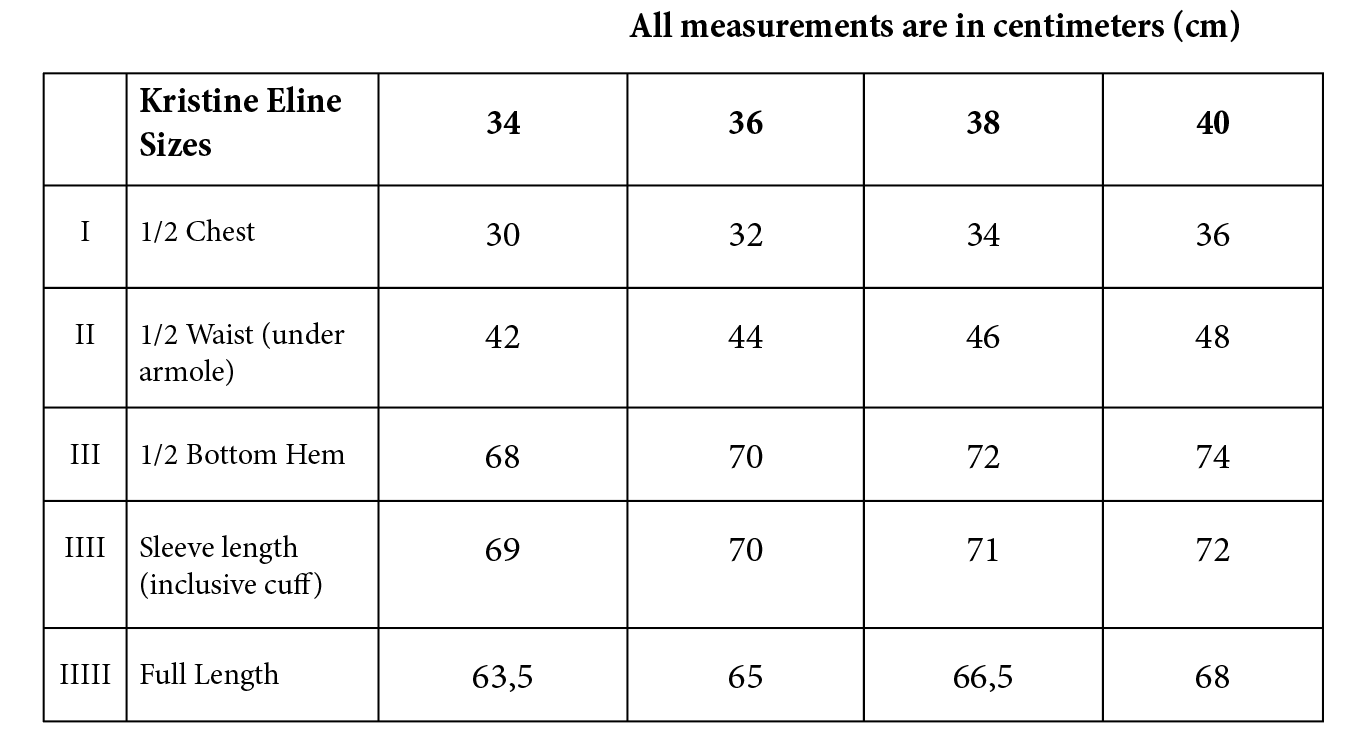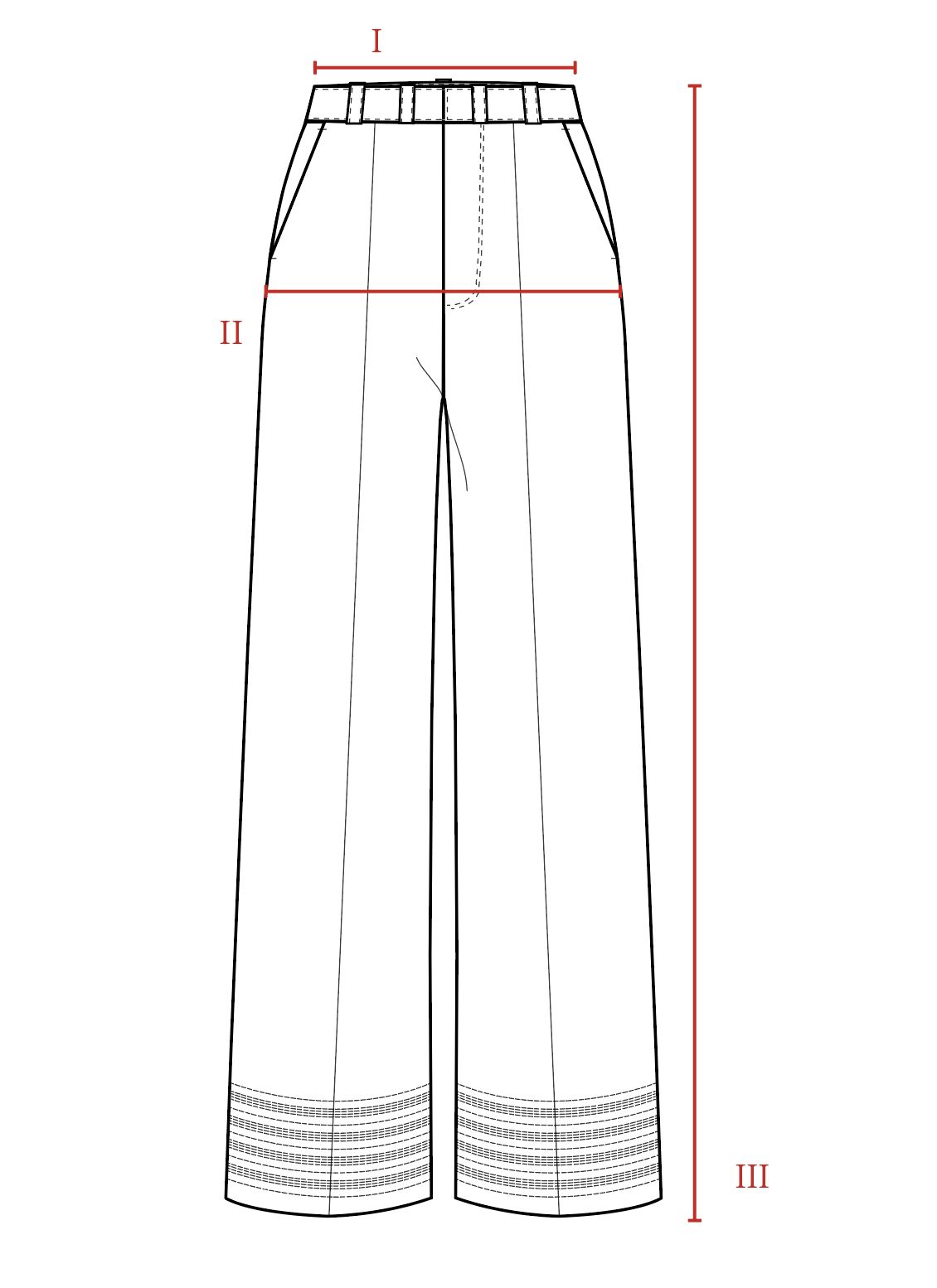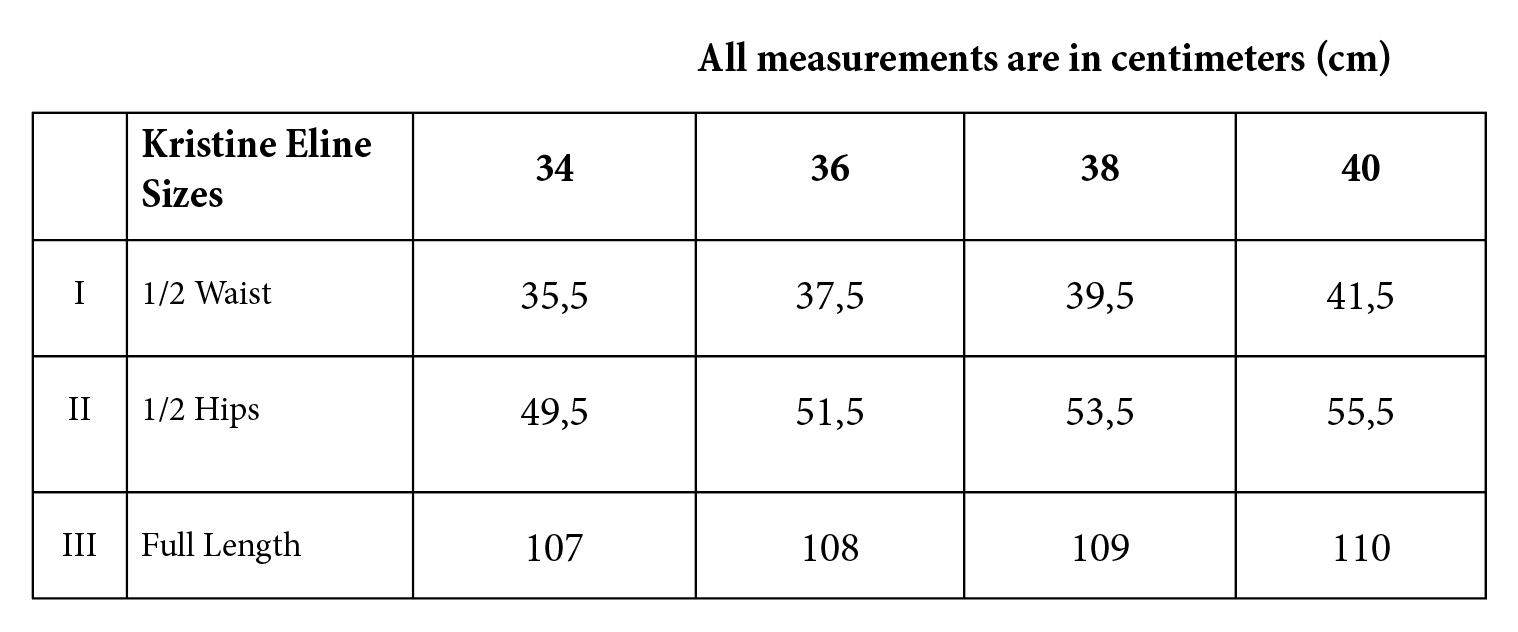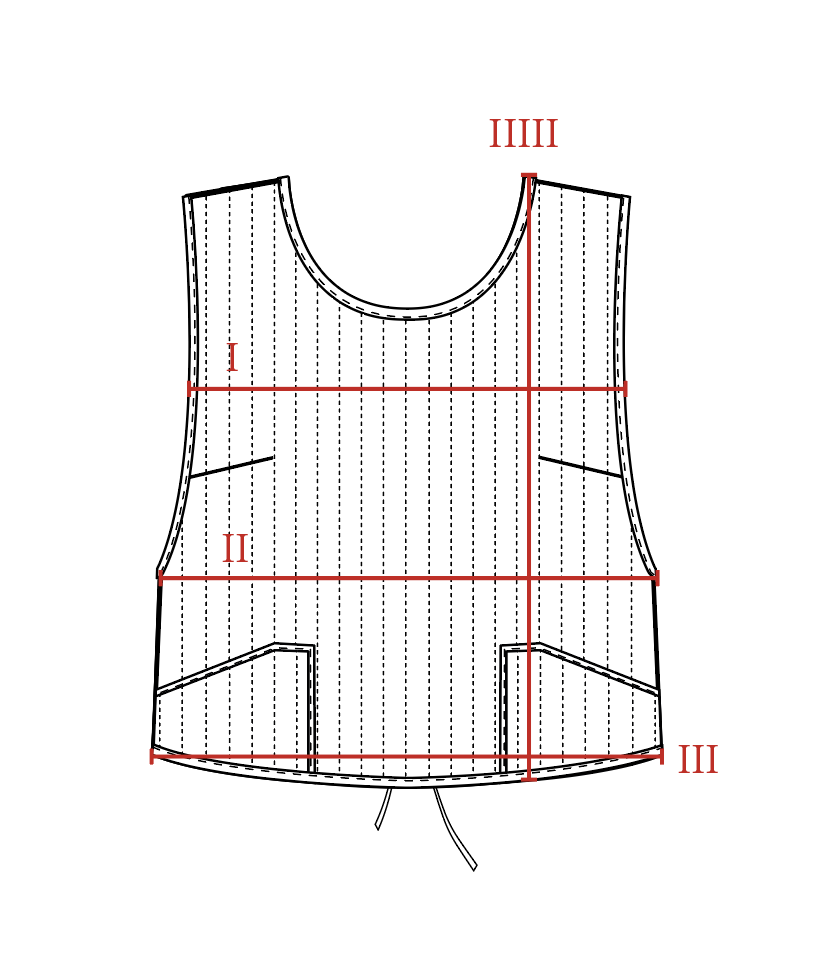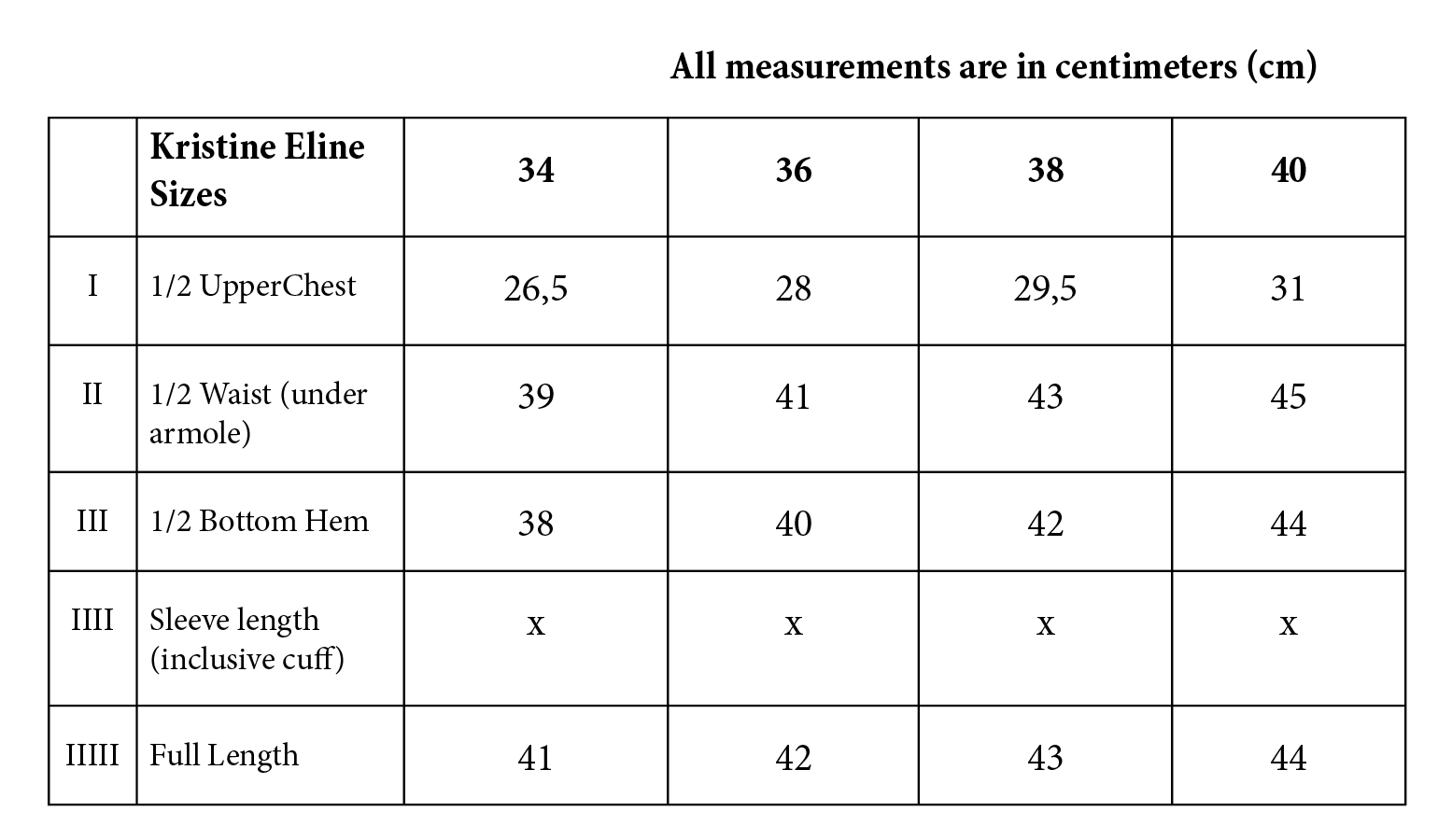fabrics
01
We exclusively work with fibers of natural origin.
No synthetic blends or synthetic trim (buttons, zippers, etc.
02
We strive to obtain certifications where possible.
03
We carefully consider the environment when choosing dyeing and finishing processes with an emphasis on ensuring safe biodegradability.
fabric manifest
plant-based fibers
Plant-based fibers refer to cellulose fibers extracted from plants. A distinction is made between bast fibers (e.g., flax) and seed fibers (e.g., cotton).
preferred
Recycled Cotton
Organic Linen
Organic Hemp
Ramie/Nettle
minimal use
Conventional Hemp
no use
Bamboo
animal fibers
Animal fibers refer to protein fibers that originate from animals.
preferred
RWS wool (The Responsible Wool Standard)
Alpaca
minimal use
no use
Silk
Angora
Down
Leather/exotic skins
Fur
regenerated fibers
Regenerated fibers refer to fibers whose chemical composition, structure, and properties have been significantly modified during manufacturing. They are divided into three categories: cellulose, protein, and synthetic fibers. We only work with regenerated cellulose fibers.
preferred
Tencel™ (Lyocell/Modal/Lyocell Filament)
Refibra™ (pre & post consumer cotton waste combined with Tencel™ Lyocell fibers)
minimal use
Modal from unspecified sources of raw materials
no use
Acetate
100% organic cotton
Twill weaving
168 grams
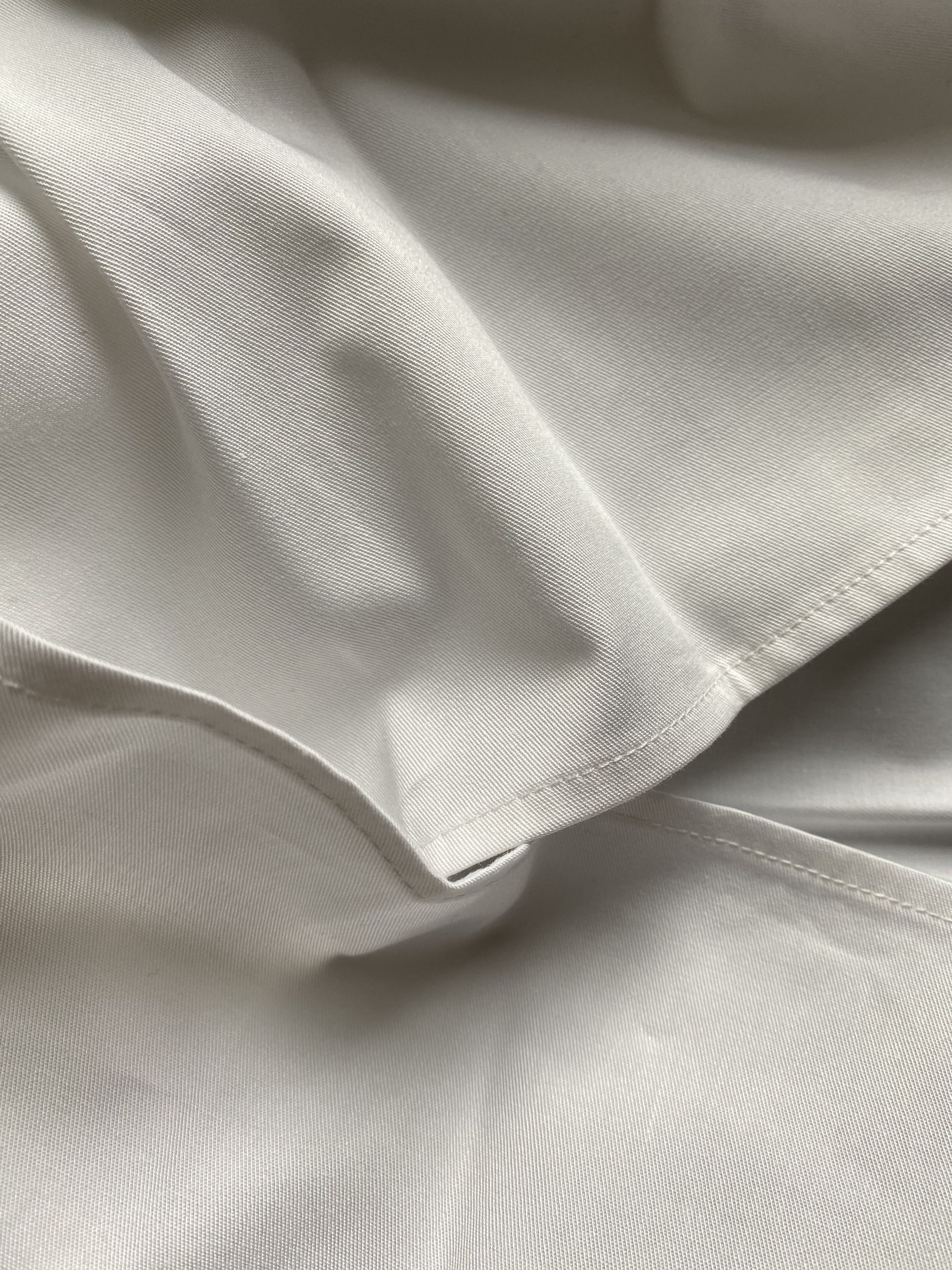
what is organic cotton?
Cotton fabric is one of the most widely used types of textiles in the world. Cotton is a fiber from the seed of the cotton plant. There are many ways in which cotton can be grown: conventional, genetically modified (GM), organically certified, BCI (Better Cotton Initiative), and many more.
All methods combined account for approximately 35 percent of the world's textiles. Therefore, cotton is the second-largest fiber category in the world within the textile industry.
However, organic cotton accounts for only a small part of the total cotton grown worldwide!
Organic cotton is an essential part of our material strategy, as it is one of the natural fibers we have chosen to use in our products.
why do we choose organic?
Organic cotton is grown using methods that protect the health of people and the environment by reducing exposure to toxic chemicals and synthetic pesticides.
Organic farming utilize materials derived from minerals, plants, or animal substances to manage pests and weeds.
Additionally, organic cultivation methods use natural fertilizers such as compost or animal manure, which recycle the nitrogen already present in the soil, thus reducing pollution.
Studies show that organic cultivation builds up organic matter in the soil, enhances fertility, and increases biodiversity while reducing pollution of soil, air, and water.
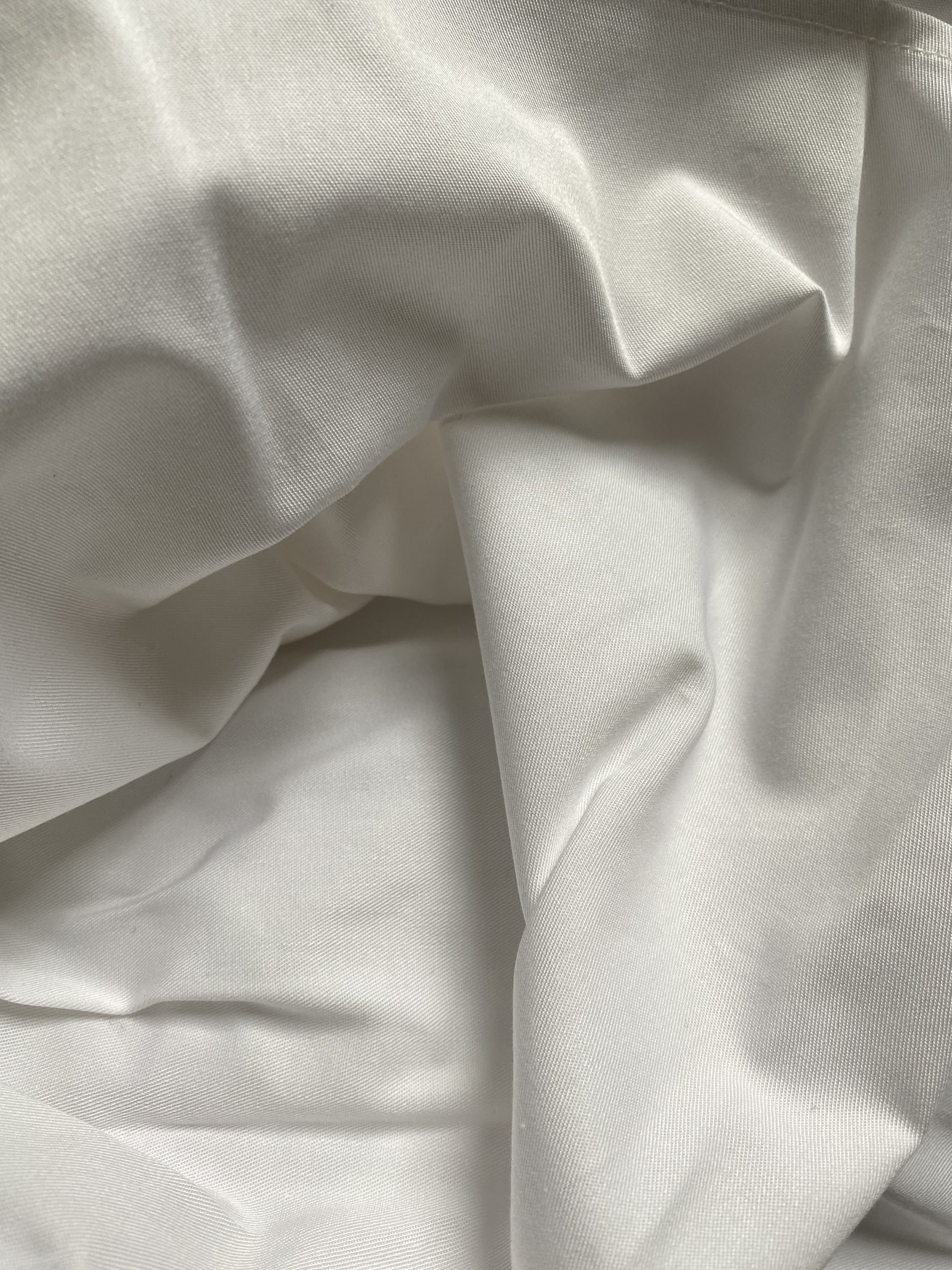
about the fiber
Our organic cotton has a natural creamy yellow color. Therefore, the fabric undergoes a sustainable bleaching process to achieve a clearer white color. In our pursuit of as natural a product as possible, we use a minimum of 95% natural and non-toxic ingredients in the bleaching process.
suppliers and subcontractors
Weaving:
One Way Tex
Dyeing and finishing:
SOMELOS (Portugal)
Sewing facility:
TEMAS SIMILARES (Portugal)
properties
No static electricity
Unlike synthetic fibers, cotton does not become electrically charged, so cotton clothing will not cling to each other or to the skin.
Breathable
Cotton has the property that heat from the body can escape, ensuring that the body can breathe in cotton clothing. Since cotton is breathable and to a lesser extent retains odors compared to synthetic clothing, cotton garments require fewer washes between uses.
Gentle on the skin
Cotton fibers are gentle on the skin and do not cause irritation. Since our bleaching process contains a minimum of 95% natural and non-toxic ingredients, the fibers remain gentle on the skin and on our planet.
Resistent to heat
Cotton has great heat resistance. The fibers can withstand ironing at high temperatures, but they may turn yellow if exposed to temperatures above 120°C for too long.
100% lyocell
Twill weaving
200gram
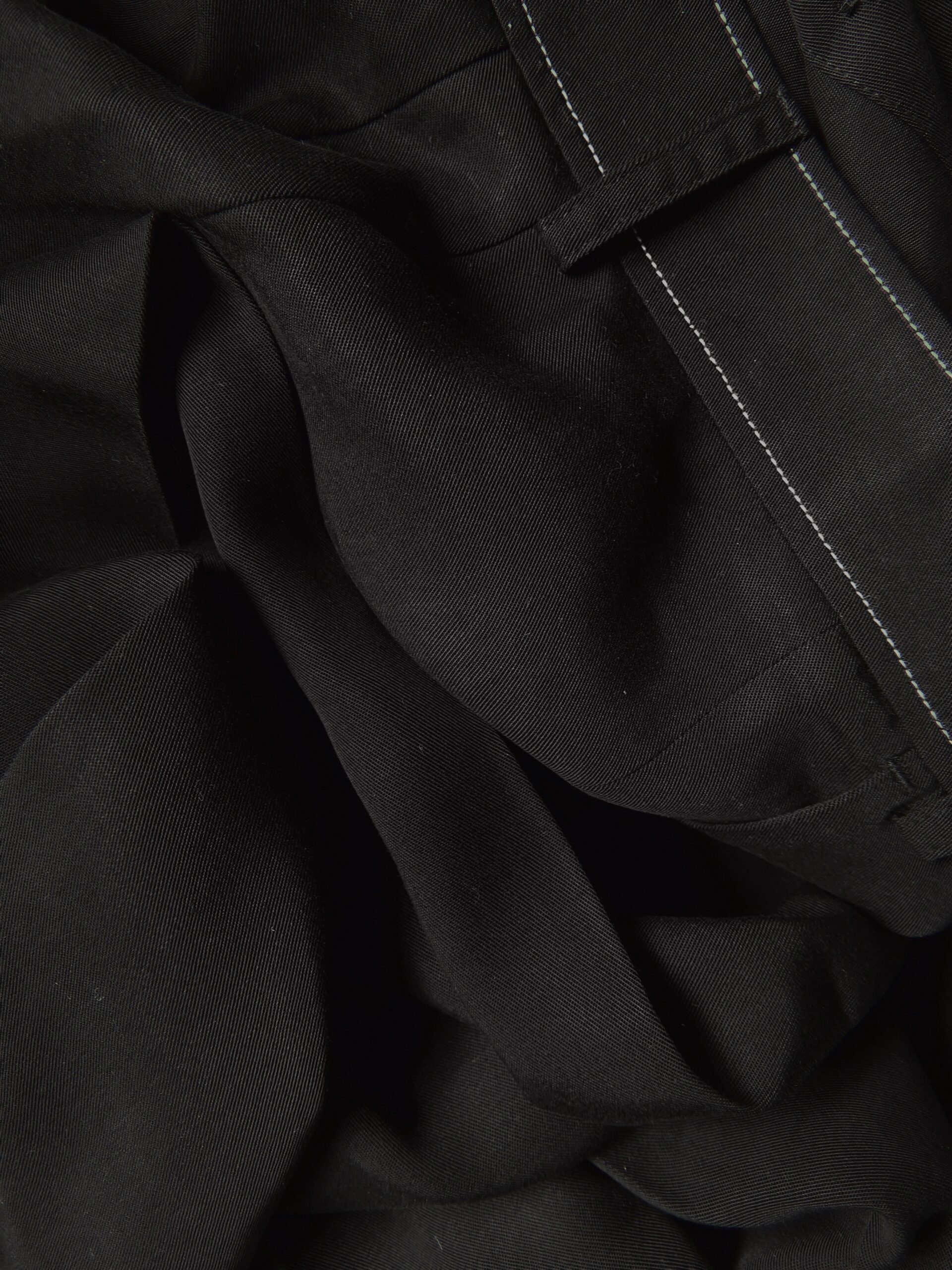
what is lyocell?
Lyocell has the same fiber properties as rayon/viscose, as both materials are made from wood pulp. However, the manufacturing process differs significantly.
Lyocell fiber is produced in a closed-loop system, where chemicals used in the manufacturing process are collected and recycled. This ensures production that is in balance with nature. Therefore, lyocell is a more sustainable alternative to traditional rayon/viscose.
suppliers and subcontractors
Weaving:
SOMELOS (Portugal)
Dyeing and finishing::
SOMELOS (Portugal)
Sewing facility:
TEMAS SIMILARES (Portugal)
Properties
Antibacterial
Lyocell fibers effectively absorbs moisture, resulting in less moisture on the surface. This leads to less favorable conditions for bacteria.
Gentle on the skin
Lyocell fibers are naturally soft and smooth, ensuring a comfortable feeling on the skin.
Breathable
Lyocell naturally enhances the transport of moisture from the skin, regulating the absorption and release of moisture. This creates a breathable sensation for the skin.
Longevity
Lyocell fiber has high strength among other cellulose fibers, resulting in long-lasting durability.
100% corozo (tagua) buttons
Natural buttons
15mm
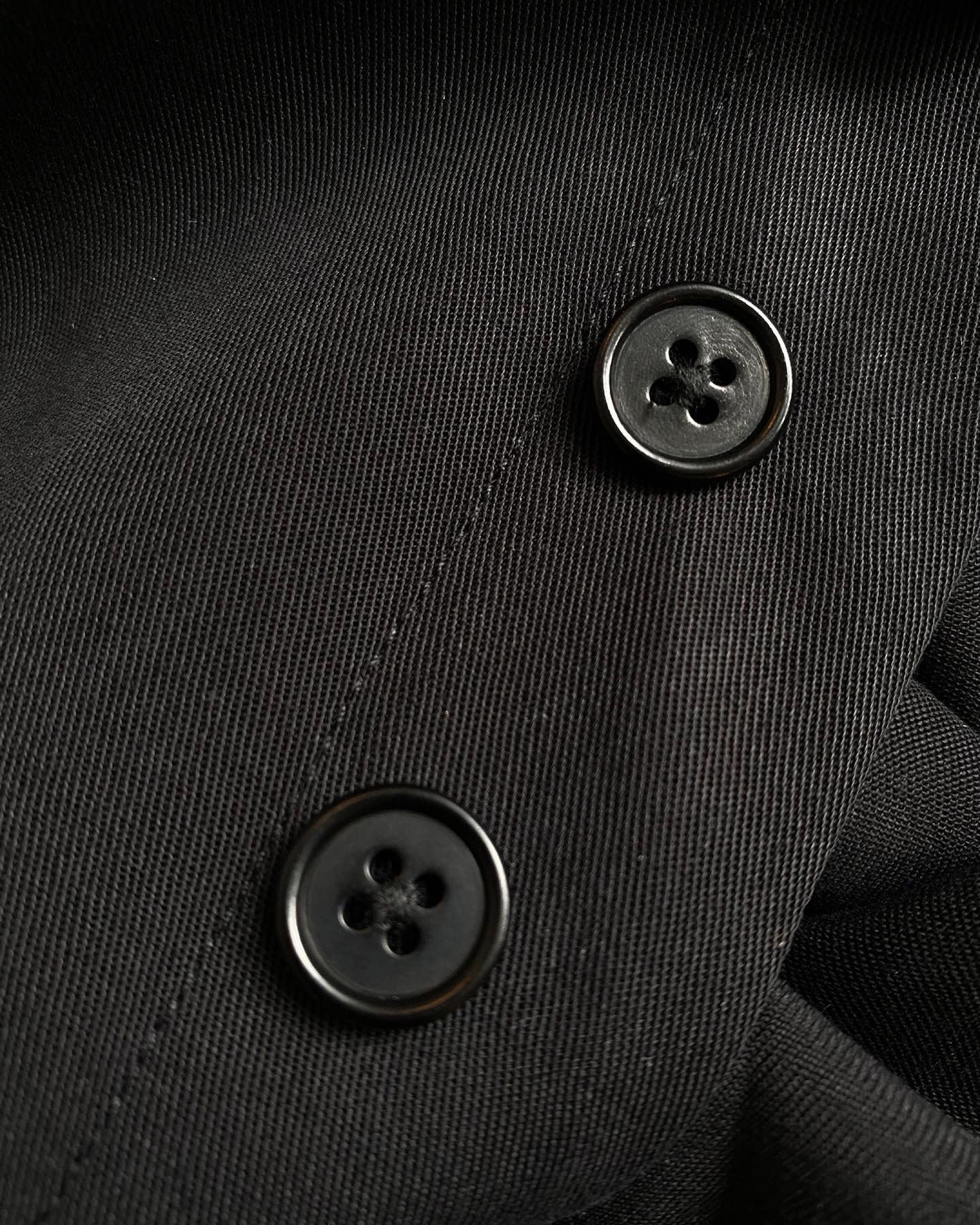
what is corozo?
Corozo is a vegetable ivory derived from the Tagua palm, which grows naturally in the rainforests of Ecuador, Peru, Colombia, and Panama
Each palm tree produces fruit clusters called "mococha." Each mococha bears approximately 30 seeds known as Corozo or Tagua nuts.
When the mococha clusters naturally fall to the ground, the nuts are collected and dried in the sun for one to two months. Once dried, they are made into Corozo buttons.
Corozo is a 100% natural product that shares the same properties as hard resin. This is why it is also referred to as vegetable ivory.
why is it a responsible choice?
What makes Corozo buttons a sustainable material choice is that the mococha clusters naturally fall to the ground when they are ripe. The nuts can only be processed once they reach this ripening stage.
It takes 10-15 years for the palm tree to produce nuts. The tree continues to bear fruit for about 100 years, making it a renewable and sustainable resource, eliminating the need for deforestation.
Therefore, the life cycle of Tagua nuts prevents potential exploitation, which could lead to deforestation, as the harvest occurs naturally when the nuts fall from the tree to the ground.
Additionally, the production of Corozo buttons helps create jobs in small local communities. Although the Tagua industry accounts for only about 0.5% of total exports, the production helps support 30,000 families in Ecuador towards better living conditions.
about this trim
Our Corozo buttons are made from nuts harvested from Tagua palm trees in Ecuador. The nuts are sent to the LOUROPEL button manufacturer in Portugal for production.
Our Corozo buttons are certified according to STANDARD 100 by OEKO-TEX®.
This means that the entire production process, including dyeing and treatment, meets the human-ecological requirements of OEKO-TEX® STANDARD 100 for product class 1.
The nuts are non-toxic, environmentally friendly, and sustainable. They are harvested without harming trees, using methods that protect the rainforest and its wildlife.
suppliers and subcontractors
country of origin:
Ecuador (South America)
manufacturer:
LOUROPEL - Fábrica de Botões, Lda (Portugal)
properties
Renewable resource
No tree felling is required as the buttons are made from the nuts of the trees. When the palm tree is mature, it can produce 15-25kg of nuts annually for up to 100 years.
Natural harvesting process
The Tagua nuts (Corozo) can only be used for button production when they naturally fall from the tree. Seeds that are picked from the tree before they are ripe cannot be used for production.
Longevity
Corozo is made of very dense organic fibers, resulting in exceptional strength and durability.
Resistant to scratches
Corozo buttons have great scratch resistance due to the structure of the organic fibers.
Alternative to plastic
Corozo buttons are a natural alternative to plastic buttons; in fact, they are more durable over time.
Unique
Each button has a unique natural surface grain.
Unlimited design possibilities
Tagua nuts can be cut, pressed, heated, burned, bleached, dyed, and polished to achieve many different shiny finishes. Therefore, Corozo buttons offer a wide range of design possibilities.
100% lyocell
Filling
100 gram x 2 (double layer)
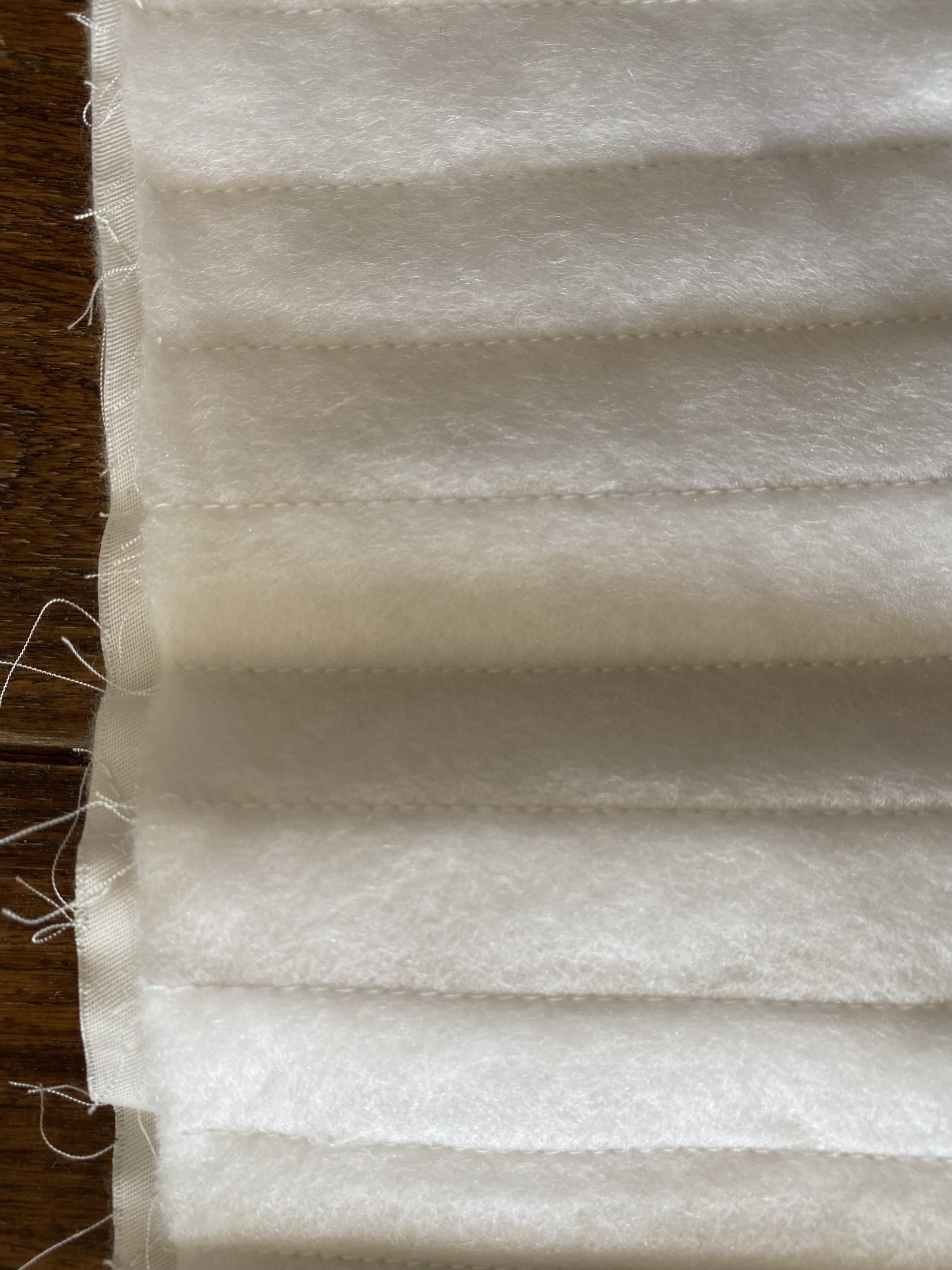
what is lyocell?
Lyocell has the same fiber properties as rayon/viscose, as both materials are made from wood pulp. However, the manufacturing process differs significantly.
Lyocell fiber is produced in a closed-loop system, where chemicals used in the manufacturing process are collected and recycled. This ensures production that is in balance with nature. Therefore, lyocell is a more sustainable alternative to traditional rayon/viscose.
suppliers and subcontractors
Producent:
Freudenberg (Austria)
Properties
Antibacterial
Lyocell fibers effectively absorbs moisture, resulting in less moisture on the surface. This leads to less favorable conditions for bacteria.
Longevity
Lyocell fiber has high strength among other cellulose fibers, resulting in long-lasting durability.
Breathable
Lyocell naturally enhances the transport of moisture from the skin, regulating the absorption and release of moisture. This creates a breathable sensation for the skin.

